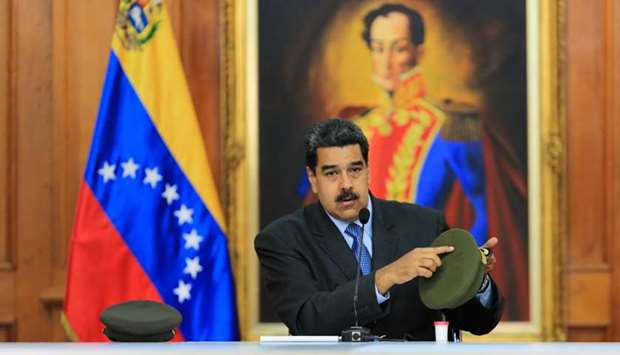Venezuelan President Nicolas Maduro on Tuesday blamed one of the country's most prominent opposition leaders for an apparent assassination attempt made against him at the weekend.
Evidence given by six people who have since been arrested indicated the involvement of National Assembly member Julio Borges, Maduro said in a televised address three days after drones carrying explosives went off in front of him as he spoke at a military ceremony in Caracas.
"Statements point to Julio Borges, who lives in a mansion in Bogota," Maduro said. "We know that he is cowardly enough to participate in such a thing." He also accused another lawmaker, Juan Requesens, of involvement.
Borges, who was last year awarded the European Union's Sakharov prize for human rights, immediately rejected the accusations in a series of tweets.
"Nicolas Maduro, neither the country nor the world believe your attack farce," Borges wrote. "We all know that it's a facade created to persecute and condemn those who oppose your dictatorship."
Borges also said that Requesens had been "imprisoned by order of Nicolas Maduro," which he described as an "unjustifiable outrage" and a violation of his parliamentary immunity.
In another address after Saturday's apparent attack, Maduro also accused Colombian president Juan Manuel Santos, who handed over office to his elected successor Ivan Duque earlier on Tuesday, of responsibility for the attack.
"I have no doubt he [Santos] was involved," Maduro repeated on Tuesday, claiming that Santos was protecting those responsible. "This assassination attempt came from abroad and we have to get to the bottom of it, who gave the order, from where."
Maduro added that the Foreign Ministry would apply for the extradition of those who plotted the attack from the United States and Colombia.
He also showed a video of one of the suspects and said that the attack was carried out by "hired assassins, hit men."
Critics have cast doubt on Maduro's version of the attack, in which seven soldiers were injured, fearing he will use it to tighten his grip on power.
The president, who has presided over a rapid decline in his country's economic fortunes, was re-elected to another six-year term in May, in polls denounced as undemocratic by the European Union, the United States and at least 12 Latin American countries.
The country is suffering a widespread shortages of basic goods and hundreds of thousands of Venezuelans have fled to neighbouring countries including Colombia to escape the hardship.
The International Monetary Fund last month predicted inflation in Venezuela would hit 1 million per cent this year.

